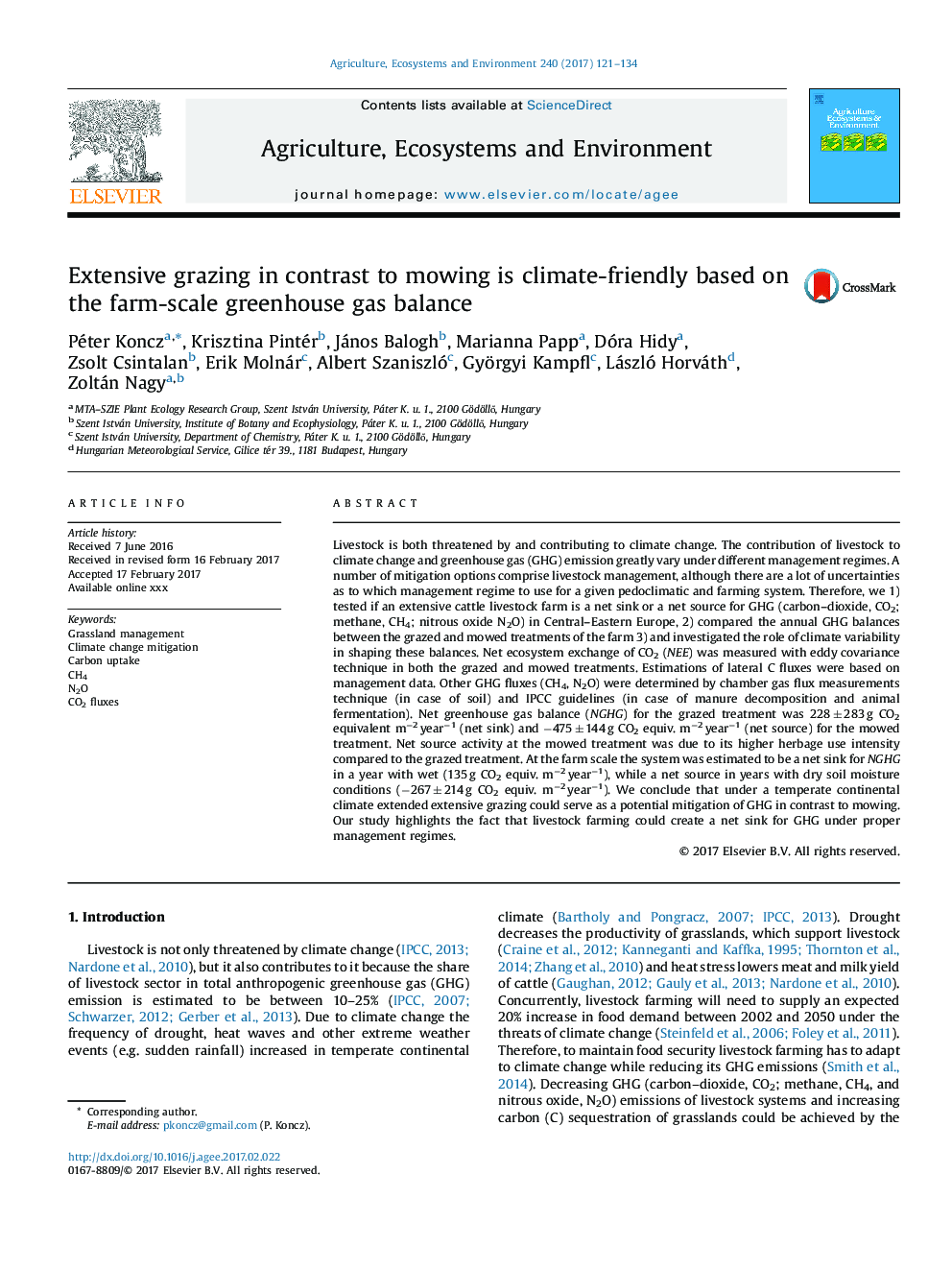| کد مقاله | کد نشریه | سال انتشار | مقاله انگلیسی | نسخه تمام متن |
|---|---|---|---|---|
| 5538161 | 1552012 | 2017 | 14 صفحه PDF | دانلود رایگان |
عنوان انگلیسی مقاله ISI
Extensive grazing in contrast to mowing is climate-friendly based on the farm-scale greenhouse gas balance
ترجمه فارسی عنوان
چراغ عاری از برداشت در مقایسه با کاشت، براساس توازن گازهای گلخانه ای در مقیاس مزرعه، سازگار با محیط زیست است
دانلود مقاله + سفارش ترجمه
دانلود مقاله ISI انگلیسی
رایگان برای ایرانیان
کلمات کلیدی
موضوعات مرتبط
علوم زیستی و بیوفناوری
علوم کشاورزی و بیولوژیک
علوم زراعت و اصلاح نباتات
چکیده انگلیسی
Livestock is both threatened by and contributing to climate change. The contribution of livestock to climate change and greenhouse gas (GHG) emission greatly vary under different management regimes. A number of mitigation options comprise livestock management, although there are a lot of uncertainties as to which management regime to use for a given pedoclimatic and farming system. Therefore, we 1) tested if an extensive cattle livestock farm is a net sink or a net source for GHG (carbon-dioxide, CO2; methane, CH4; nitrous oxide N2O) in Central-Eastern Europe, 2) compared the annual GHG balances between the grazed and mowed treatments of the farm 3) and investigated the role of climate variability in shaping these balances. Net ecosystem exchange of CO2 (NEE) was measured with eddy covariance technique in both the grazed and mowed treatments. Estimations of lateral C fluxes were based on management data. Other GHG fluxes (CH4, N2O) were determined by chamber gas flux measurements technique (in case of soil) and IPCC guidelines (in case of manure decomposition and animal fermentation). Net greenhouse gas balance (NGHG) for the grazed treatment was 228 ± 283 g CO2 equivalent mâ2 yearâ1 (net sink) and â475 ± 144 g CO2 equiv. mâ2 yearâ1 (net source) for the mowed treatment. Net source activity at the mowed treatment was due to its higher herbage use intensity compared to the grazed treatment. At the farm scale the system was estimated to be a net sink for NGHG in a year with wet (135 g CO2 equiv. mâ2 yearâ1), while a net source in years with dry soil moisture conditions (â267 ± 214 g CO2 equiv. mâ2 yearâ1). We conclude that under a temperate continental climate extended extensive grazing could serve as a potential mitigation of GHG in contrast to mowing. Our study highlights the fact that livestock farming could create a net sink for GHG under proper management regimes.
ناشر
Database: Elsevier - ScienceDirect (ساینس دایرکت)
Journal: Agriculture, Ecosystems & Environment - Volume 240, 1 March 2017, Pages 121-134
Journal: Agriculture, Ecosystems & Environment - Volume 240, 1 March 2017, Pages 121-134
نویسندگان
Péter Koncz, Krisztina Pintér, János Balogh, Marianna Papp, Dóra Hidy, Zsolt Csintalan, Erik Molnár, Albert Szaniszló, Györgyi Kampfl, László Horváth, Zoltán Nagy,
